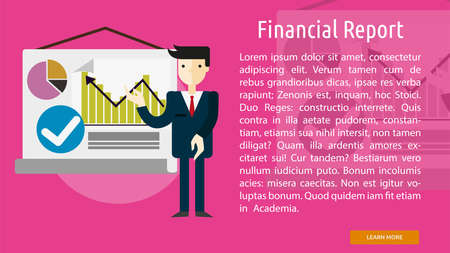Overview of UK Investment Funds
The UK boasts a sophisticated and diverse investment fund landscape, catering to both individuals seeking to build personal wealth and institutions aiming to achieve long-term financial objectives. At their core, investment funds pool money from multiple investors to access a wider range of assets and professional management expertise than most people could achieve on their own. In the UK, several types of funds are prevalent, including unit trusts, open-ended investment companies (OEICs), investment trusts, and exchange-traded funds (ETFs). Each structure is designed with distinct regulatory frameworks and operational nuances, but all serve the primary purpose of providing investors with diversified exposure to equities, bonds, property, or alternative assets.
Investment funds play a pivotal role in supporting both retail investors—those building pension pots or saving for major life milestones—and institutional investors like pension schemes, charities, and insurance companies who require robust vehicles for capital growth or income generation. By enabling access to professionally managed portfolios and spreading risk across numerous holdings, UK investment funds underpin much of the nation’s collective wealth-building efforts and contribute significantly to the overall health of financial markets.
2. Key Structures of UK Investment Funds
When navigating the landscape of UK investment funds, it is crucial to understand the principal structures available to British investors. The three predominant fund types—Open-Ended Investment Companies (OEICs), unit trusts, and investment trusts—each offer distinct features, legal frameworks, and investor benefits. These structures cater to diverse investment strategies, risk appetites, and regulatory requirements, shaping how individuals and institutions build their portfolios.
OEICs (Open-Ended Investment Companies)
OEICs are a popular choice among UK investors due to their flexibility and simplicity. They operate as corporate entities with variable capital, allowing for the creation or cancellation of shares in response to investor demand. This open-ended nature ensures that the fund’s size can expand or contract seamlessly based on subscriptions and redemptions.
- Characteristics: Daily pricing, easy entry/exit, regulated by the Financial Conduct Authority (FCA).
- Advantages: Transparent pricing at net asset value (NAV), suitable for a wide range of asset classes, strong investor protections.
- Common Uses: Core holdings in ISAs, pensions, and general investment accounts.
Unit Trusts
Unit trusts are long-established collective investment vehicles in the UK. They pool investor money into a trust structure managed by a trustee and an authorised fund manager. Like OEICs, unit trusts are open-ended; units are issued or redeemed according to investor demand.
- Characteristics: Priced daily or periodically, dual pricing (bid/offer spread), FCA-regulated.
- Advantages: Well-suited to regular savings plans, established track record, tax efficiency within certain wrappers.
- Common Uses: Popular for retail investors seeking diversified exposure without directly managing assets.
Investment Trusts
Unlike OEICs and unit trusts, investment trusts are closed-ended companies listed on the London Stock Exchange. Their share capital is fixed after launch, meaning shares are traded between investors on the secondary market rather than being created or cancelled by the fund itself.
- Characteristics: Listed on LSE, price determined by market supply/demand (may trade at premium/discount to NAV), independent board oversight.
- Advantages: Ability to use gearing (borrowing to invest), long-term focus, access to less liquid assets such as infrastructure or private equity.
- Common Uses: Favoured by experienced investors seeking specialised sectors or alternative assets not easily accessible through open-ended funds.
Main Features Comparison Table
| Feature | OEICs | Unit Trusts | Investment Trusts |
|---|---|---|---|
| Legal Structure | Company | Trust | Listed Company |
| Status | Open-ended | Open-ended | Closed-ended |
| Pricing Method | NAV-based single price | Duel price (bid/offer) | Market price (premium/discount possible) |
| LSE Listed? | No | No | Yes |
| Main Regulator | FCA | FCA | FCA/LSE regulations apply |
| Main Use Case | Pensions, ISAs, GIA | Savings plans, ISAs | Niche exposures, alternatives |
| Pooled Assets? | Yes | Yes | Yes |
| Bearing Gearing? | No | No | Yes (often used) |
The Importance of Selecting the Right Fund Structure in the UK Context
The choice between OEICs, unit trusts, and investment trusts depends on personal financial goals, risk tolerance, and preferences for liquidity or specialist exposure. British investors often blend these structures in their portfolios to balance stability with growth potential—reflecting both traditional practices and modern investment philosophies across the UK market.

3. Regulatory Landscape
The UK’s investment fund sector is underpinned by a robust regulatory framework, designed to ensure market integrity, investor confidence, and the continued appeal of the UK as a global financial centre. At the heart of this framework is the Financial Conduct Authority (FCA), which plays a pivotal role in authorising, supervising, and enforcing standards across all types of investment funds operating within the UK.
Role of the Financial Conduct Authority (FCA)
The FCA oversees the conduct of investment managers, custodians, and distributors, ensuring that firms act in the best interests of their clients. All firms managing or marketing investment funds must be authorised by the FCA, which imposes stringent requirements regarding capital adequacy, operational resilience, and governance. The FCA also has the power to intervene where practices fall short, providing an important safeguard for investors.
Key Regulations Governing Investment Funds
UK investment funds are primarily regulated under the Financial Services and Markets Act 2000 (FSMA) and subsequent amendments. In addition, specific regulations such as the Collective Investment Schemes (CIS) regime and the Undertakings for Collective Investment in Transferable Securities (UCITS) directive establish clear standards on fund structure, risk management, disclosure obligations, and eligible assets. Since Brexit, the UK has maintained alignment with many EU-derived rules while introducing tailored measures to suit domestic needs.
Investor Protection and Compliance Standards
Protecting investors is a cornerstone of the UK regulatory landscape. This is achieved through mandatory client money rules, segregation of assets, regular reporting requirements, and detailed disclosures on fees and risks. The FCA also enforces compliance with anti-money laundering (AML) standards and conducts periodic reviews to ensure ongoing adherence. For retail investors, schemes like the Financial Services Compensation Scheme (FSCS) offer additional reassurance in case of firm failure or mismanagement.
Collectively, these regulations foster transparency, accountability, and trust—qualities that have cemented London’s reputation as a leading hub for investment funds globally.
4. Market Participants and Ecosystem
The UK investment fund landscape is defined by a network of specialised participants, each playing a critical role in ensuring efficient operation and investor protection. Understanding the interplay between these market actors is essential for anyone looking to navigate the UK’s fund environment with confidence.
Key Players in the UK Investment Fund Market
| Market Participant | Role & Responsibilities |
|---|---|
| Fund Managers | Responsible for making investment decisions, managing portfolios, and executing strategies aligned with fund objectives. They are authorised by the Financial Conduct Authority (FCA) and act as fiduciaries for investors’ capital. |
| Custodians | Hold legal title to fund assets, ensuring their safekeeping and independence from the fund manager. Custodians also settle trades and provide record-keeping services, adding an essential layer of security to the ecosystem. |
| Advisers | Offer guidance to retail and institutional investors on selecting appropriate funds based on individual circumstances, goals, and risk appetite. Advisers must comply with FCA rules regarding suitability and transparency. |
| Platforms | Online services that facilitate access to a wide range of investment funds. Platforms aggregate offerings from various fund managers and streamline administration for investors, often incorporating tools for research and comparison. |
The Interconnected Ecosystem
The strength of the UK’s investment funds sector lies in its collaborative ecosystem. Fund managers rely on custodians for asset protection, while advisers bridge the gap between products and end-investors. Platforms further democratise access, making it easier for individuals across Britain—from seasoned City professionals to everyday savers—to build diversified portfolios. The FCA’s regulatory oversight ensures that all parties adhere to rigorous standards, maintaining trust throughout the investment process.
How Participants Interact Within the Broader System
The relationship among these players is both symbiotic and robustly governed:
- Fund managers delegate asset custody to custodians, who independently safeguard client assets.
- Advisers analyse offerings managed by various fund managers, recommending suitable options via platforms.
- Platforms serve as the marketplace, allowing investors easy access to multiple funds while ensuring transparency in pricing and performance data.
- The FCA’s regulation underpins every stage, enforcing compliance, mitigating conflicts of interest, and protecting retail investors’ interests across the value chain.
A Dynamic Yet Well-Regulated Market Environment
This interconnected system supports innovation while prioritising investor safety—a hallmark of the UK’s global reputation in asset management. As digital platforms grow in prominence and regulatory standards evolve post-Brexit, understanding this market architecture remains vital for anyone aiming to invest wisely within the UK context.
5. Trends and Market Dynamics
The UK investment fund sector is in a state of continuous evolution, shaped by a blend of market forces, technological advancement, and shifting societal expectations. Understanding these trends is crucial for investors and fund managers seeking to navigate an increasingly complex landscape.
ESG Investing: A Mainstream Movement
Environmental, Social, and Governance (ESG) investing has moved firmly into the mainstream within the UK. Institutional and retail investors alike are prioritising funds that demonstrate strong ESG credentials, driven by both ethical considerations and the belief that sustainable businesses deliver superior long-term performance. The Financial Conduct Authority (FCA) is actively encouraging transparency around ESG claims, while frameworks such as the UK Stewardship Code are guiding responsible investment practices. As a result, many fund managers are integrating ESG analysis into their core strategies and reporting standards.
Technology Adoption and Digital Transformation
Technological innovation continues to reshape the UK investment fund industry. From the widespread adoption of digital platforms for trading and reporting to the use of artificial intelligence in portfolio management and risk assessment, technology is enhancing efficiency, reducing costs, and improving client engagement. Robo-advisers are also gaining traction among younger investors seeking low-cost, automated solutions aligned with their personal financial goals. This digital shift is prompting traditional fund houses to adapt rapidly or risk being left behind.
Economic and Political Influences
The broader economic environment exerts significant influence on fund flows and investment strategies. The lingering effects of Brexit continue to shape regulatory divergence from the EU, impacting cross-border fund distribution and investor sentiment. Inflationary pressures, interest rate adjustments by the Bank of England, and global market volatility all contribute to changing asset allocations within portfolios. Meanwhile, political uncertainties—ranging from fiscal policy shifts to upcoming general elections—add another layer of complexity for fund managers operating in the UK.
Emerging Themes: Passive Investing and Alternatives
Passive funds, such as index trackers and ETFs, have seen marked growth as cost-conscious investors seek low-fee exposure to broad markets. At the same time, there is rising interest in alternative assets—including infrastructure, real estate, and private equity—as investors diversify away from traditional equity-bond portfolios in search of enhanced returns amid volatile conditions.
Looking Ahead
The interplay between regulation, innovation, investor preferences, and macroeconomic factors ensures that the UK investment fund market remains dynamic. For those adopting a FIRE (Financial Independence, Retire Early) mindset or pursuing systematic wealth-building strategies, staying attuned to these trends will be essential in achieving robust financial outcomes over the long term.
6. Opportunities and Challenges for Investors
Investing in UK funds presents a dynamic landscape, shaped by both unique opportunities and notable challenges. For investors aiming to achieve long-term financial independence or FIRE (Financial Independence, Retire Early), understanding these dynamics is essential to building resilient and tax-efficient portfolios.
Key Opportunities in the UK Market
The UK fund sector offers access to a diverse range of investment vehicles—from traditional OEICs and unit trusts to innovative ETFs and REITs. This breadth allows investors to tailor allocations according to their risk tolerance, time horizon, and financial goals. The regulatory framework overseen by the FCA ensures a high level of transparency and investor protection, fostering trust and accountability. Furthermore, tax-advantaged wrappers such as ISAs and SIPPs provide efficient avenues for compounding returns while minimising tax liabilities—an essential consideration for those targeting early retirement or wealth preservation.
Sector Diversity and Global Exposure
UK funds often grant exposure not just to domestic equities and bonds but also to global markets, including emerging economies. This diversification can help mitigate localised risks and capture growth opportunities worldwide. The presence of well-established fund managers based in London—one of the world’s leading financial centres—also means investors benefit from professional expertise and robust due diligence processes.
Potential Pitfalls and Practical Considerations
Despite these strengths, investors must navigate several pitfalls. Fund charges, such as ongoing fees or entry/exit costs, can erode returns over time if not carefully managed. Performance dispersion between active and passive funds also requires scrutiny; while active funds may offer outperformance potential, they come with higher fees and no guaranteed results. Market volatility—exacerbated by Brexit-related uncertainties or global economic shifts—demands a disciplined approach, ideally through systematic portfolio reviews and rebalancing.
Regulatory Changes and Tax Implications
Investors should remain vigilant about evolving regulations that may affect fund structures, disclosures, or allowable investments within tax wrappers. Keeping abreast of policy updates enables proactive adjustments to maintain tax efficiency and compliance. Additionally, currency fluctuations can impact returns on international holdings—a factor worth integrating into your risk management strategy.
Building Resilient Portfolios: A Systematic Approach
A successful UK investment strategy hinges on systematic planning: defining clear objectives, diversifying across asset classes, leveraging tax-efficient products like ISAs/SIPPs, monitoring costs, and regularly reviewing performance relative to benchmarks. By combining local market insight with prudent system-driven decisions, investors can better position themselves to capture opportunities while weathering inevitable market headwinds.


